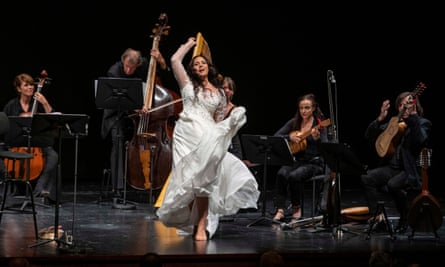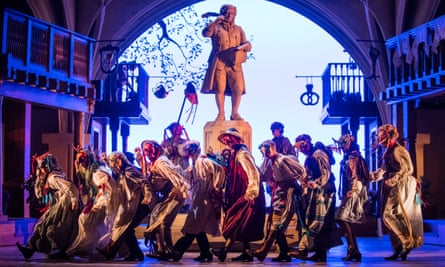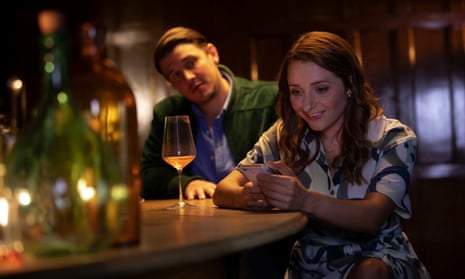I’ve spent the last couple of weeks catching up with the Edinburgh international festival, which has moved online and on to the radio this year. At 11am every weekday until 28 August, Radio 3 is broadcasting an archive series from the Queen’s Hall, an impressive sequence of recitals that includes the exceptional Austrian baritone Florian Boesch singing Schubert’s Die Schöne Müllerin from 2016, and Anne Sofie von Otter’s haunting 2014 tribute to the musicians who died under the Nazis at the concentration camp at Terezín.
Socially distanced performances, filmed without audiences at familiar festival venues, make up the online programme, meanwhile. Nicky Spence and Malcolm Martineau can be heard in an engaging recital of Shakespeare settings by composers as far apart as Haydn and John Dankworth. Paul Lewis and the Scottish Chamber Orchestra give a searching account of Beethoven’s Second Piano Concerto, while the Royal Scottish National Orchestra and Thomas Søndergård opt for Mahler, prefacing the Seventh Symphony in a chamber version by Klaus Simon, with three of the Rückert-Lieder sung with poised introspection by Karen Cargill. In the slimmed-down orchestration, the symphony sounds lean, sinewy and very modernist.
The high point, though, is Daisy Evans’s Scottish Opera film of Gian Carlo Menotti’s 1947 comedy The Telephone, a piece that has lost none of its bite in our tech-conscious times. Evans updates it to the present day and relocates it from New York to Edinburgh itself, where we find Soraya Mafi’s Lucy ensconced in the bar of the King’s theatre, gossiping away on her mobile while Jonathan McGovern’s increasingly desperate Ben tries to distract her long enough be able to propose. Both singers are splendid: we sense both the insecurity behind Mafi’s garrulous excitement and the sincere affection that lurks beneath McGovern’s growing annoyance. Deftly conducted by Stuart Stratford, it’s funny, sad and heartwarming by turns, and a real treat.

In Salzburg, meanwhile, it’s not quite been business as usual, though the festival is running a scaled-down programme of live events, many of which are available streamed on Arte. Among them is a striking recital of baroque music given by the Bulgarian soprano Sonya Yoncheva and the Cappella Mediterranea under Leonardo García Alarcón. There are some ravishing things here, including arias by Cavalli and Monteverdi, lute songs by Dowland and Zableiano Mi Agunce, an anonymous Bulgarian piece that is simply glorious.
And as part of its #HomeTour series, the London-based early music group The Telling is streaming Vision: the Imagined Testimony of Hildegard of Bingen, a film about the 12th-century mystic and composer, written by soprano Clare Norburn, directed by Nicholas Renton, and shot in St Mary Magdalene’s Church in Paddington. Actor Teresa Banham plays Hildegard, while Norburn and mezzo Ariane Prüssner are mesmerising in the music. An austerely beautiful piece about a woman whose faith gave her extraordinary strength and courage, it’s only available until this Wednesday, 26 August, but it really is wonderful, so do try and catch it.
My picks for the week ahead

The Proms finally go live, albeit without audiences, on Friday 28 August, when Sakari Oramo gives the first concert, on BBC2, with the BBC Symphony Orchestra in a programme that includes Beethoven’s Eroica and music by Hannah Kendall, Aaron Copland and Eric Whitacre. And on 30 August, David McVicar’s handsome 2011 staging of Wagner’s Die Meistersinger von Nürnberg forms the final instalment of Glyndebourne Open House, superbly conducted by Vladimir Jurowski and with a tremendous central performance from Gerald Finley as Sachs.

Comments (…)
Sign in or create your Guardian account to join the discussion